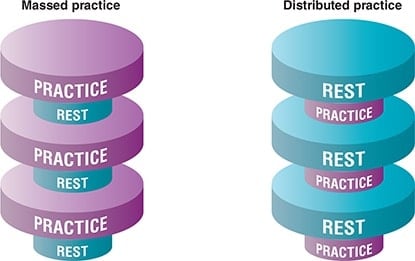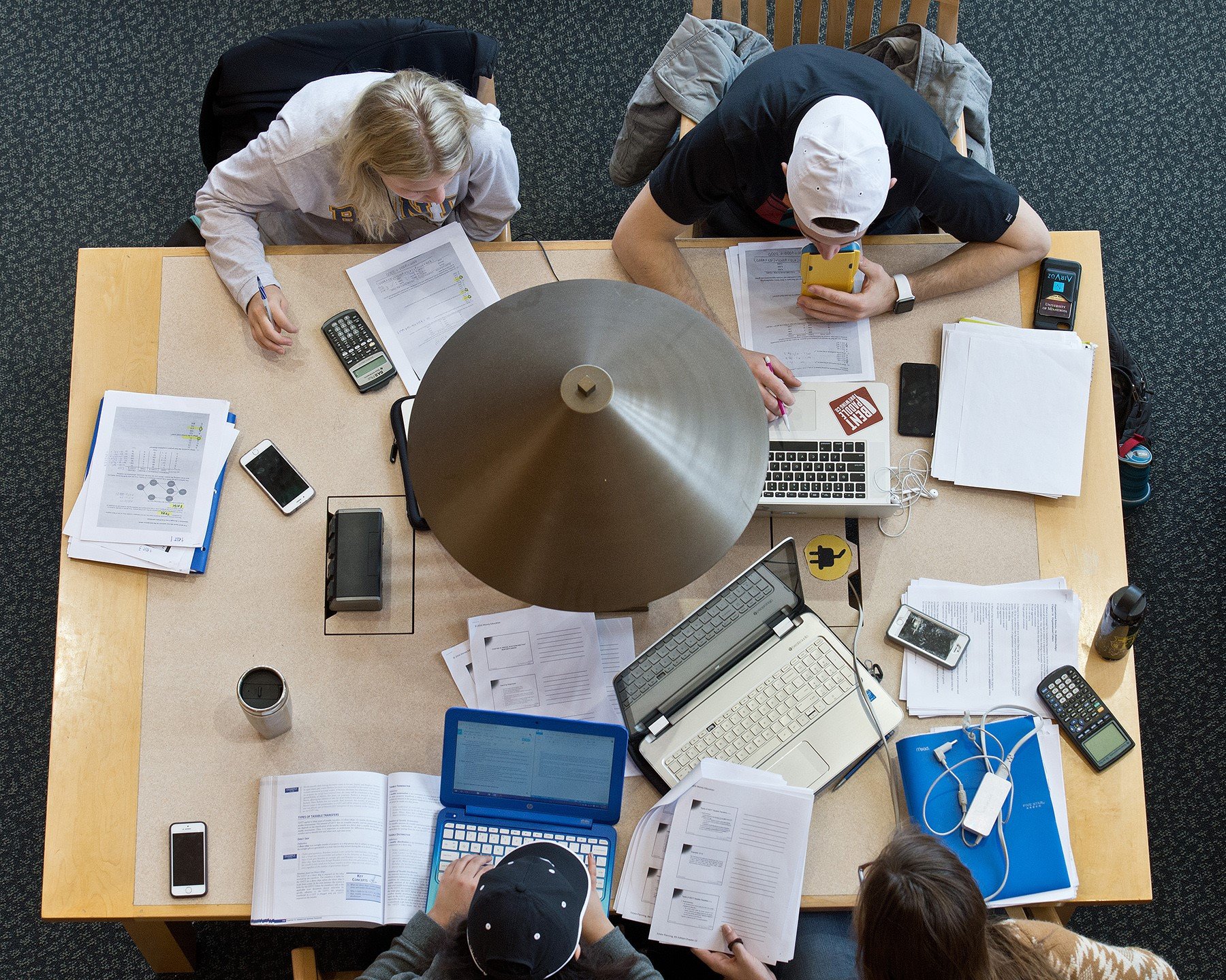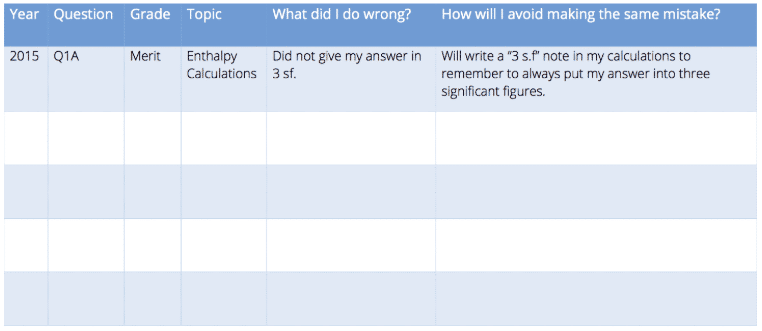
If you’re a parent of a student at high school, chances are your teen will be sitting their mock exams soon. While different schools sit them at different times, almost all schools in the country have some form of mock/preliminary/practice exams coming up – if they’re not happening already.
As tutors, we’ve found there’s a lot of confusion surrounding mock exams from both parents and students alike. Do they actually matter? What do they mean? How much effort should I put in? Does it count for anything?
As a result of this confusion, often times students will resort to either apathy (“why should i even try?”) or anxiety (“if i don’t get perfect grades i won’t get into medical school”).
This is a shame, because mock exams have more value than students might imagine. While they’re not the most important exams in the world, they can be incredibly beneficial for students.
So we’ve created an (updated) guide to help ease the stress and confusion surrounding mock exams, and support you and your teenager in making the most of this opportunity.
Now's the perfect time to get started.
Make sure your teenager is on track to succeed in their exams with help from one of our expert tutors. Sign up before it’s too late!
What are mock exams?
Simply put, mock exams are practice exams designed to prepare students for the “real” exams that usually take place in Term 4 (NCEA, Cambridge, IB, school exams, etc.)
Most schools will try their best to make mock exams as close as possible to the “real thing”. This means an allocated day for the exam; a period of “study leave” whereby students can revise from home; strict exam conditions; and a period after the exams where teachers will mark and moderate students’ work.
How much do they matter?
This entirely depends on the school, but in a strictly formal sense: not a whole lot.
Mock exams are designed to serve as “back-up-grades” for if students cannot sit their real exams at the end of the year. This means that if a student cannot sit an exam for some reason, they can apply to have a derived grade, based on the marks they receive in mock exams. Because of this, it’s important students know that mocks aren’t entirely irrelevant.
In the 2016 Wellington earthquake, which struck during NCEA exams, hundreds of students were forced to use their mock exam results for official NCEA credits.
But although mocks have some importance, we should try to dispel the myth that mock exams are a cruel trick to judge students’ ability for no reason other than early stress.
Instead, we should try to view mock exams for what they are: an opportunity for students to prepare, learn and make mistakes before the stakes get high in “real” exams.
Think of mocks like an insurance policy: probably not going to be used in the end, but worth the investment for good coverage in case things go belly-up!
What should I be doing to prepare?
For many students, mocks will be their first encounter with formal exams, and self-directed study is a hard thing to get right first time.
But succeeding in mocks isn’t a matter of ludicrous hours, memorised content, or even “natural” intelligence. With a solid plan, some smart strategies, and a little bit of self-discipline, anyone can meet their exam potential, especially with the added freedom of knowing you can always try again in real exams.
Below, we’ve compiled our top science-backed strategies for studying for mocks, to give you a head start on making the most of these pesky exams.
Strategy One: Distributed Practice
One of the biggest myths when it comes to study is: the longer and harder the study session, the deeper the learning.
But in fact, years of scientific research has proven the opposite to be true. Studies have shown that humans and animals learn less effectively in long, dense practice sessions, and actually register information much more effectively across many smaller microsessions over a long period of time.

For example, doing fifteen minutes of revision after school everyday for two weeks might not seem like a lot – but you’ll actually learn (and remember) much more than you would doing 5 hours of study right before the exam.
Additionally, splitting your study into manageable chunks means you are more likely to stick to your study plans. Spending 15 minutes of focused study on one concept seems pretty painless compared to committing to an entire day at the library.
How to apply distributed practice to your studies:
- Depending on how soon your mocks are, set aside a small amount of time (between 10-25 minutes) everyday to revise for your exams. The frequency and duration of your sessions will depend on how much you have to learn before your exams, but the key is to make a goal that you’ll stick to no matter what. It can’t be too big or you run the risk of slipping up once and then ditching the habit all together.
- Set a timer to remind you to complete your session if you have to.
- Promise yourself: “no matter I’m feeling, when the timer goes off, I will sit down and do the 15 minutes – no complaints.”
- Remember to commit your focus for the entire session (15 minutes of completely focused study is more valuable than one hour of distracted revision). Turn off your phone, find a quiet space, and give those 15 minutes your everything.
- Once you’ve finished your session, you’re done!
- If the session was horribly difficult, or you didn’t achieve much at all, the beauty of this exercise is that it’s over now. And next session, it’ll be easier!
- If the session was a breeze, increase the duration of your sessions to learn even more – or try do another break after your study.
Rinse and repeat! Don’t beat yourself up if you miss a day or two, the magic of distributed practice is in the repetition.
Get the executive skills to succeed - today and tomorrow.
In your first session with your tutor match, you’ll receive a customised study plan designed to suit your learning needs.
Strategy Two: Prioritise harder concepts
While an average learner will spend hours rehashing things they already know and ignoring everything that they don’t, an effective learner will quickly evaluate the concepts they’re struggling with and spend time overcoming their weaknesses before moving onto their strengths.
One of the biggest mistakes that students can make when revising is studying the things they’re already confident with, leaving no time for the more challenging material.
This is either done consciously or unconsciously – but it’s often what lets students down in exams.
Making sure you know your difficult content is especially important in mocks, and even more so if you’re aiming for a Merit or Excellence.
Teachers will often deliberately include “curveballs,” in mock exams so that students become familiar with thinking fast under pressure – so don’t expect easy content just because it’s a practice exam!
How to prioritise your study material:
- Download an overview of your subject standard from the NCEA website covering what you need to know for your exam (Checklists can also be found from StudyTime, NoBrainTooSmall or from your teacher).
- For each requirement, test yourself by writing a short explanation of the concept to yourself or answering a few quiz-style questions surrounding the topic.
- Then, rate your knowledge of each concept on the checklist on a scale of 1-5: 1 not knowing anything and 5 being super confident.
- Focus your time on the lowest-rated concepts first so that you have a sound general knowledge of everything.
- If the concepts are too difficult to cover in one study session, or you’re feeling overwhelmed, divide the concept down into its most basic elements and learn them in isolation. For example, if you were studying micro-organisms for your Biology class, you might spend one session on structure, one session on culturing, one session on life processes and one session on environmental factors.
- Once you have a solid grasp of each isolated concept, join them together in a mind-map or essay and explain how they are interrelated.
Finally, “tie up” any loose ends or gaps in your knowledge by doing past papers under exam conditions. Mark yourself, note where you still need improvement, and repeat the process.
Learn how to learn.
We help students to take control of their education – at their pace, and on their terms.
Strategy Three: Experiment with new study methods
Students are usually smarter than their exam results give them credit for.
This is because while schools do a good job of teaching material, they often do not educate students on the right ways to make information “stick”.
Finding a study method that works for students is a personal process. It requires experimentation, self-reflection and dedication: and mocks are the perfect time to play around and find what works.
Use this period as a chance to get creative with your study methods. Re-reading your old notes may provide short term reassurance, but time and time again strategies like these have experimentally ineffective.

Instead, try one or more of the following:
- The Feynman Technique
- The Leitner System – (great for our last heading about tackling difficult material!)
- Mnemonic devices
- Summary sheets
- Dual coding
- Elaboration
- Pomodoro Method
How to find the right study method:
- Select one study technique from the list above.
- Spend a few study sprints trying out this technique.
- Test your knowledge. How was the study technique? Rate its effectiveness. Think and reflect on the technique. Was it useful? Did you implement fully? What are the advantages and disadvantages?
- If you like the technique, continue using and practicing it. Or even better: write down the study technique to keep it in your memory and help to make it more interactive.
Learning should never be a chore.
Our tutors know how to revive your teenager’s passion for knowledge. Sign up today!
Strategy Four: Use “failure-first” learning
When it comes to learning, we assume getting the answer wrong is a bad thing.
However, recent research has suggested that guessing the wrong answer first actually helps your brain to arrive at the right answer quicker next time. By failing first, your brain not only develops new neural pathways to retrieve that information faster, but also supports a deeper understanding of why that answer is the right one.
At Inspiration Education, we call this “failure-first learning,” – and it works. Researchers are the University of California have recently hypothesised that by guessing an answer before we know it, our brains become ‘activated’ – and this activation helps us register the correct answer more powerfully.
How to use failure-first learning in your studies:
- Try and complete a textbook/workbook/exam question without looking at the answers or having any notes open. If you aren’t sure or have no idea, give it a guess anyway.
- Find out the right answer and actively compare this against your original guess.
- Pick up your notes and do a few study ‘sprints’ on the concepts the question is based on.
- Once you feel more confident, give the question another go. If you get stuck, do more study sprints.
- Try another question based on the same concept to check that you definitely understand the concept.
Strategy Five: Do past exam papers under timed exam conditions
Mock exams are not only about testing your knowledge, but also, developing your ability to perform under pressure.
This means that knowledge of the material alone isn’t enough.
Your performance, strategy and time-management in the exam will make a huge difference, so it’s worth investing in these skills while you have the time (and leisure).
When you play sport, you’re often told to practice like you play. The same logic applies to exam performance. When we’re under pressure, our brain’s default to what’s called “automatic thinking”, meaning we read situations with the same habitual mental strategies that we use during our practiced repetitions.
What this means is that if you practice at 70% focus and intensity, you’re more likely to perform at 70% focus and intensity during the big sports match. Your mental performance will always default back to what it’s used to when the pressure’s on – there’s no way of magically boosting your brain power when it matters.
One way to ensure you can easily tap into your game-brain when the pressures on is by mimicking the same exam conditions you’ll be working under from home.
Exam-taking is a skill, and like any other skill, it gets easier with practice. The more study you complete under exam conditions, the less daunting they become. When you practice, make sure that you do at least some of it timed, and without your notes available.
Try to see exams as an opportunity to practice using and applying knowledge under pressure. Throughout life, there will be many times you’ll have to use initiative, fast-thinking and time management to perform under high stakes.
Even if the first time you try it out and it’s a disaster, relish in the luxury of being able to try again with no consequences! By the time you walk through those exam-room doors, you’ll be a natural.
How to use failure-first learning in your studies:
- Try and complete a textbook/workbook/exam question without looking at the answers or having any notes open. If you aren’t sure or have no idea, give it a guess anyway.
- Find out the right answer and actively compare this against your original guess.
- Pick up your notes and do a few study ‘sprints’ on the concepts the question is based on.
- Once you feel more confident, give the question another go. If you get stuck, do more study sprints.
- Try another question based on the same concept to check that you definitely understand the concept.
Strategy Six: Reflection
Mock exams will only benefit you if you learn from them. And the best strategy for making sure those lessons stick? Reflection!

When mocks are over, make sure all your hard work isn’t wasted by taking the time to reflect on your performance.
If you did badly, don’t just throw your exam in the bin and sulk for it: find out the real reason why.
If you did great, don’t assume it’s just because you’re a natural! If you look closer, you can clearly map how, why and what you did to achieve the grades you did.
Good, bad or neutral – there’s always some pearls of wisdom to find when you look back.
Taking the time to assess your mistakes will help you to avoid making the same ones in future, and seeing where you did well will boost your confidence and help you to replicate those strategies for the real thing.
To help, we’ve made you a table to document your progress with practice past-exams. The table asks you for the year, question, grade, topic, what you did wrong, and concrete steps you’ll take to avoid making the same mistake.

Even if the idea of more study admin seems useless, we urge you to give this simple table a go next time you do study with a past-exam.
Recognising your mistake is one thing, remembering it in the moment is another. Writing your mistakes down helps you to remember what to do avoid, and forces you to evaluate strategies for improvement.
Print off this template, fill it out when doing your practice papers, and add the table to the top of your study notes so that you have a constant visual reminder of your progress. If you can get into an organised habit of reflection and strategising – you’ll be well on your way to a Merit or Excellence.
The best way to do a practice exam:
- Get an exam question out.
- Put your notes and the answers away.
- Set a timer based on how long the exam is. For example, if the exam is made up of 3 question and you have 60 minutes to do it, you might assign 20 minutes for one question.
- Do as much of the question as you can within the allotted time. Mark your answer. Do another question and aim to improve your time by trying different approaches.
If you want to go the extra mile: keep a record of how long it took you to complete each exam and the grade you received. This is an easy way to visualise improvement and evaluate how your exam strategies are working.
Meet your best self.
Every student has endless potential inside them. Our tutors know how to unlock it.
Conclusion:
While mock exams are only a small component of your overall school experience, you shouldn’t lose sight of their value.
Mock exams provide an awesome window to try out new strategies, refine your exam techniques and test the waters before the stakes are too high.
Take our tips one strategy at a time, and be sure to reflect on any changes that you notice. Remember to be kind to yourself, and allow a generous amount of time to reflect on any improvements or struggles you notice.
Mock exams don’t have to be a source of premature stress. If you plan right, study smart and take good care of yourself, you might even find yourself enjoying the process.
Good luck!
More useful articles written for parents
Invest in your child's future.
Find out how we help teens build the executive skills they’ll need for tomorrow’s world.

